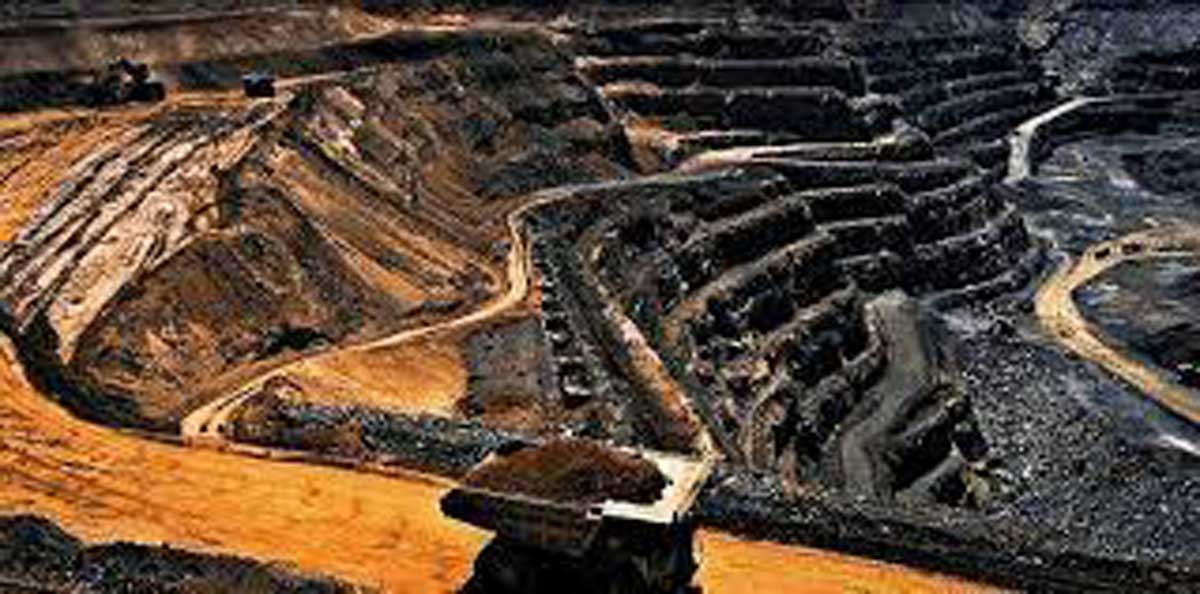Amidst nationwide protests over rising electricity bills and escalating tensions with a Chinese coal extraction partner in Thar, the federal government has finally granted approval for a crucial infrastructure project. This project involves the construction of a 105-kilometer railway line connecting Thar to Bin Qasim, with the goal of seamlessly linking Sindh's coal mines to both the national and global energy markets.
The primary objectives are to increase the role of cost-effective coal-based energy in Pakistan's energy mix and reduce the financial burden on consumers by lowering overall power bills. Additionally, this railway network will streamline the supply of Thar coal to fertilizer and cement manufacturers, potentially enabling coal-to-gas conversion.
At present, coal transportation heavily relies on trucks, which are costly and time-consuming, especially for large-scale bulk supply. The strategic railway track will serve as a vital link for efficiently transporting Thar's abundant coal reserves to power projects across the country.
Abu Bakar Ahmed, the Secretary of the Sindh Energy Department, disclosed that he had secured federal approval for the construction of a 105-kilometer railway line, stretching from Chorr to Islamkot, ultimately connecting to Port Qasim, a deep-sea port in Karachi.
This ambitious project is scheduled for completion by December 2024 and is expected to cost Rs58 billion, with equal financial participation from both the federal and Sindh governments.
The overarching vision behind this initiative is to transition 4-5 thermal power projects, currently reliant on imported coal, thereby reducing the nation's import bills. Pakistan currently spends approximately $2 billion annually on coal imports.
In Pakistan's diversified energy environment, Thar coal is in the top two most cost-effective energy sources, with power projects using Thar coal consistently offering some of the most cost-effective energy solutions among the country's 74 power projects.
While coal-fired projects now provide roughly 3,500 megawatts of power to Pakistan, the country's peak power demand is expected to exceed 25,500 megawatts in August 2023.
Notably, a few years ago, coal-fired power projects were practically non-existent in Pakistan. Secretary Ahmed stressed the importance of relying on fossil fuels for sustained power production in Pakistan, with Thar coal being one of the most economically viable fuel options available.
He emphasized the challenges faced when establishing power projects near the coal mines, including issues like water scarcity and inadequate power transmission infrastructure in the Thar region. Therefore, it is crucial to strategically transition to using rail transport for distributing coal across the country. This shift also opens up the possibility of coal exports if the need arises. Thar coal, classified as lignite, shares similar combustion and moisture characteristics with the coal that Germany has extensively utilized for decades. In contrast, India has nearly exhausted its coal reserves in the Rajasthan region.
Pakistan, on the other hand, boasts a staggering 175 billion tons of coal reserves in Tharparkar alone, equivalent to 50 billion tons of oil equivalent (TOE). This surpasses the oil reserves of Saudi Arabia and Iran combined, according to the Sindh Engro Coal Mining Company (SECMC). While these coal reserves could potentially meet Pakistan's electricity demand for centuries, their application extends beyond power generation, creating opportunities for diverse utilization.
Ahmed noted that the increasing use of expensive fuels like imported furnace oil has driven power production costs to a record high of Rs72 per unit, compared to Rs28 per unit just two years ago. This surge in production costs is a significant factor in the recent rise in electricity bills, which has triggered public protests. Thar coal emerges as a feasible and sustainable solution to the ongoing power crisis, with its increased utilization expected to ease the financial burden on consumers.
Meanwhile, the China Machinery Engineering Corporation (CMEC), the operator of a Chinese coal mine in Thar Block-II, has issued a warning, stating that they will cease coal extraction activities unless outstanding receivables of $50 million are settled by September 10.
See also:
Govt targeting streamlined rail-sea-rail transport for coal efficiency
India aims to double coal production by 2030




















